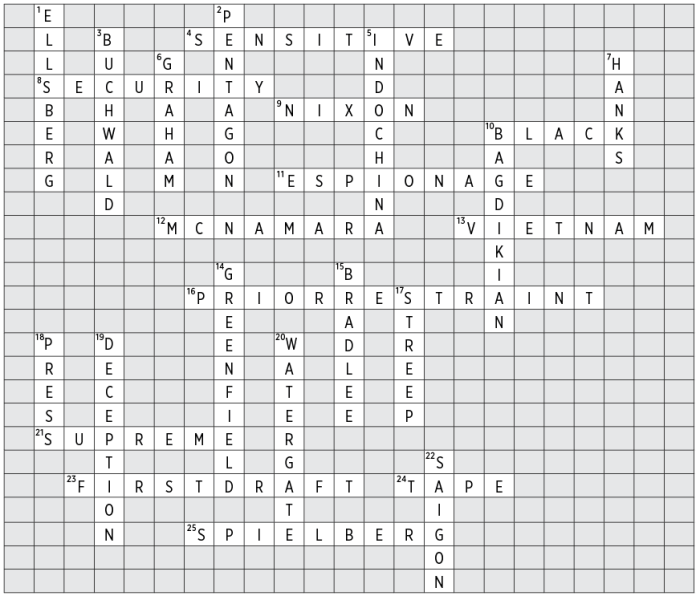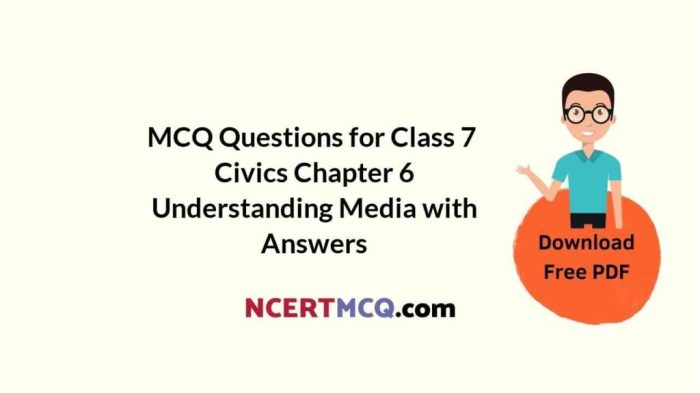In the realm of modern society, the role of media, as encapsulated in the “The Role of Media iCivics Answer Key,” holds immense significance. It shapes public opinion, informs and educates, and serves as a catalyst for social change.
The intricate interplay between media and public discourse warrants careful examination, as the media’s influence extends beyond the dissemination of information. It has the power to frame narratives, influence perceptions, and ultimately shape the collective consciousness.
Media Literacy

In today’s digital age, media literacy has become an essential skill for navigating the vast and ever-changing media landscape. It empowers individuals to critically evaluate and understand the messages conveyed through various media platforms, enabling them to make informed decisions and participate effectively in society.
The media plays a pivotal role in shaping public opinion. Through the dissemination of news, information, and entertainment, it has the power to influence perceptions, beliefs, and attitudes. Media literacy allows individuals to recognize and critically assess media biases, understand how media content is constructed, and evaluate the credibility and reliability of information sources.
The Role of Media in Informing and Educating
The media serves as a primary source of information for the public. News organizations, documentaries, and investigative journalism play a crucial role in keeping citizens informed about current events, social issues, and scientific advancements. By providing access to diverse perspectives and in-depth analysis, the media empowers individuals to make informed decisions and engage in meaningful civic discourse.
Moreover, the media can be a powerful tool for education. Educational programs, documentaries, and online resources offer opportunities for individuals to learn about a wide range of topics, from history and science to culture and the arts. Media literacy enables individuals to identify and evaluate the educational value of media content and use it to enhance their knowledge and understanding of the world.
Media Bias
Media bias refers to the selective presentation of news and information that favors a particular perspective or viewpoint. It can take various forms, including omission, distortion, and fabrication.
Media bias can significantly impact public discourse by shaping public opinion and influencing policy decisions. It can also lead to polarization and division within society.
Forms of Media Bias, The role of media icivics answer key
- Omission bias:The selective omission of relevant information that could challenge a particular narrative.
- Distortion bias:The presentation of information in a way that misrepresents or exaggerates its significance.
- Fabrication bias:The deliberate creation and dissemination of false or misleading information.
Examples of Media Bias
- Example 1:A news report that focuses solely on the negative aspects of a political candidate while ignoring their positive qualities.
- Example 2:A documentary that presents a biased view of a historical event by selectively omitting key facts.
- Example 3:A social media post that spreads false information about a particular group or individual.
Media Regulation

Media regulation refers to the various mechanisms and measures employed by governments and other entities to oversee and control the media industry. It encompasses a wide range of approaches, including legal frameworks, industry self-regulation, and public oversight. The primary goal of media regulation is to ensure that the media operates in a responsible and ethical manner, while also protecting the public interest and fundamental rights, such as freedom of expression.There
are several different ways in which the media can be regulated. One common approach is through legal frameworks, which establish specific laws and regulations governing media content, ownership, and distribution. These laws may address issues such as obscenity, defamation, hate speech, and copyright infringement.
Another form of media regulation is industry self-regulation, where media organizations establish their own codes of conduct and standards to ensure responsible practices within the industry. Additionally, public oversight mechanisms, such as independent media councils or regulatory bodies, can be established to monitor and enforce media regulations.The
pros and cons of media regulation are complex and subject to ongoing debate. Proponents of media regulation argue that it is necessary to protect the public from harmful or offensive content, promote diversity and pluralism in the media, and ensure that the media operates in a fair and competitive manner.
Critics of media regulation, on the other hand, argue that it can stifle freedom of expression, limit creativity and innovation, and lead to censorship.Different countries have adopted different approaches to media regulation. In some countries, such as the United States, media regulation is primarily based on First Amendment protections for freedom of speech, with limited government intervention.
In other countries, such as the United Kingdom, there is a more extensive system of media regulation, including independent regulatory bodies and industry codes of conduct.The specific approach to media regulation adopted by a country depends on a variety of factors, including its political system, cultural values, and historical experiences.
It is important to note that there is no one-size-fits-all approach to media regulation, and the optimal balance between freedom of expression and public protection must be carefully considered in each context.
Media and Democracy: The Role Of Media Icivics Answer Key
The media plays a crucial role in a democracy by informing citizens about important issues, holding those in power accountable, and facilitating public discourse. However, the media can also contribute to or undermine democratic values depending on its independence, objectivity, and commitment to truth.
Positive Role of Media in Democracy
- Informing the public:The media provides citizens with information about current events, government policies, and social issues, enabling them to make informed decisions.
- Holding those in power accountable:The media can investigate and report on corruption, misconduct, and abuses of power by government officials and other public figures.
- Facilitating public discourse:The media provides a platform for citizens to express their views, engage in debates, and influence public opinion.
Negative Role of Media in Democracy
- Spreading misinformation and propaganda:The media can be used to spread false or misleading information, which can undermine public trust and sow division.
- Sensationalism and bias:The media may prioritize sensationalism and biased reporting over objective and factual news, which can distort public perception of events.
- Concentration of media ownership:When a small number of corporations control a large share of the media, it can lead to a lack of diversity of perspectives and a suppression of dissenting voices.
Examples of Media’s Role in Democracy
- Positive:The media played a vital role in the Arab Spring uprisings, providing information about the protests and holding governments accountable for human rights abuses.
- Negative:In Russia, the media has been used to suppress dissent and promote government propaganda, undermining democratic institutions.
Media and Social Change

The media plays a pivotal role in promoting social change by raising awareness of important issues, mobilizing people for action, and providing a platform for marginalized voices.
The media can raise awareness of important issues by highlighting them in news stories, documentaries, and other forms of media. This can help to educate the public about the issue and build support for change.
Media Campaigns for Social Change
The media can be used to launch media campaigns that are designed to promote social change. These campaigns can use a variety of tactics, such as public service announcements, social media campaigns, and celebrity endorsements.
One example of a successful media campaign for social change is the “It Gets Better” campaign. This campaign was launched in 2010 in response to the suicides of several LGBTQ+ youth. The campaign featured videos of LGBTQ+ adults sharing their stories of hope and resilience.
The campaign helped to raise awareness of the issue of LGBTQ+ youth suicide and provided a message of hope to those who were struggling.
FAQ Resource
What is media literacy?
Media literacy refers to the ability to critically evaluate and understand the messages conveyed through various media platforms.
How does media bias impact public discourse?
Media bias can distort information, promote particular viewpoints, and undermine the integrity of public debate.
What are the different forms of media regulation?
Media regulation can take various forms, including government oversight, industry self-regulation, and independent media councils.
How does the media contribute to or undermine democratic values?
The media can support democratic values by providing accurate information, fostering public dialogue, and holding those in power accountable. However, it can also undermine democracy by spreading misinformation, polarizing society, and suppressing dissent.
What role does the media play in promoting social change?
The media can raise awareness of important issues, mobilize people for action, and hold decision-makers accountable for their policies.